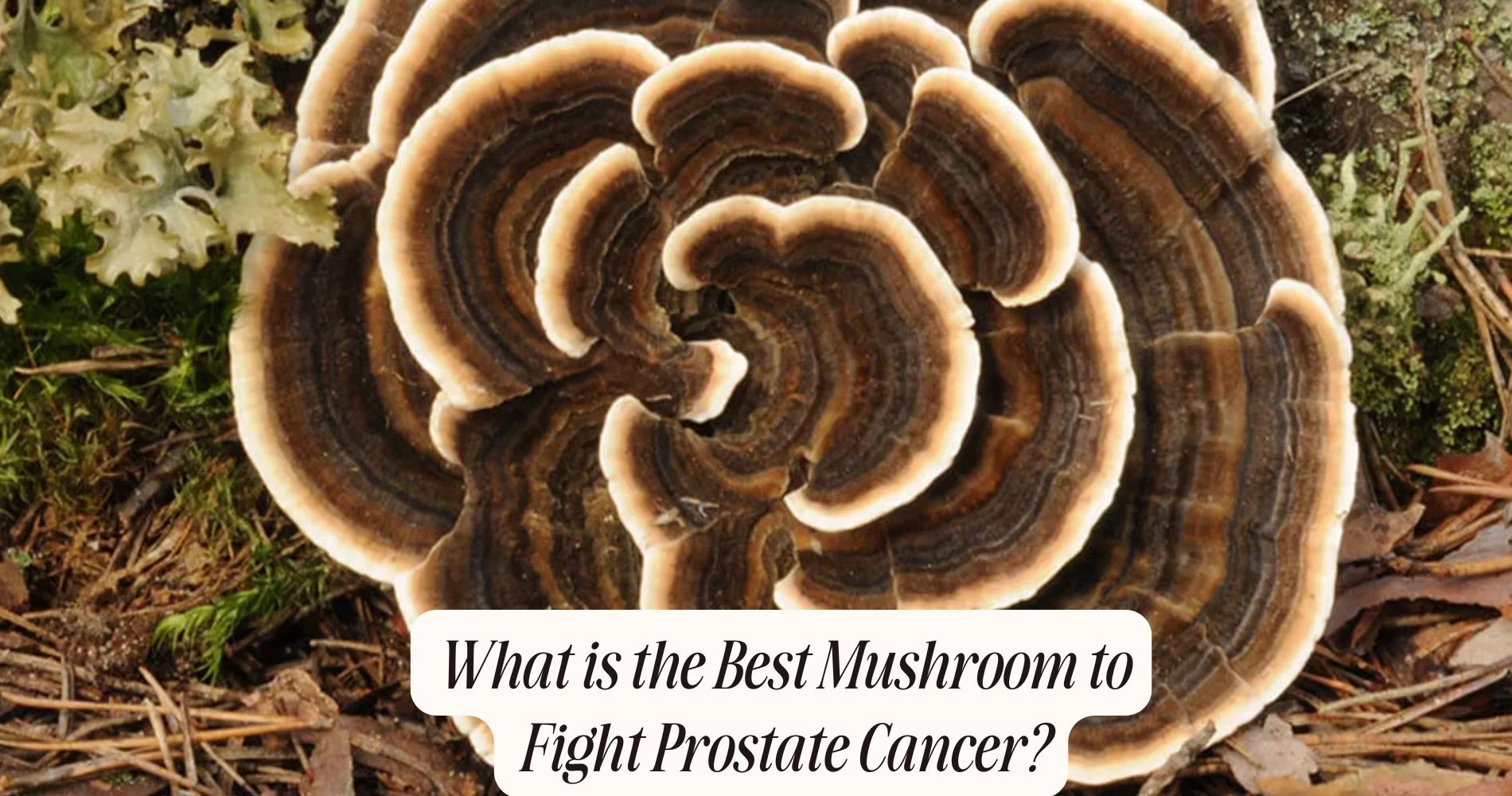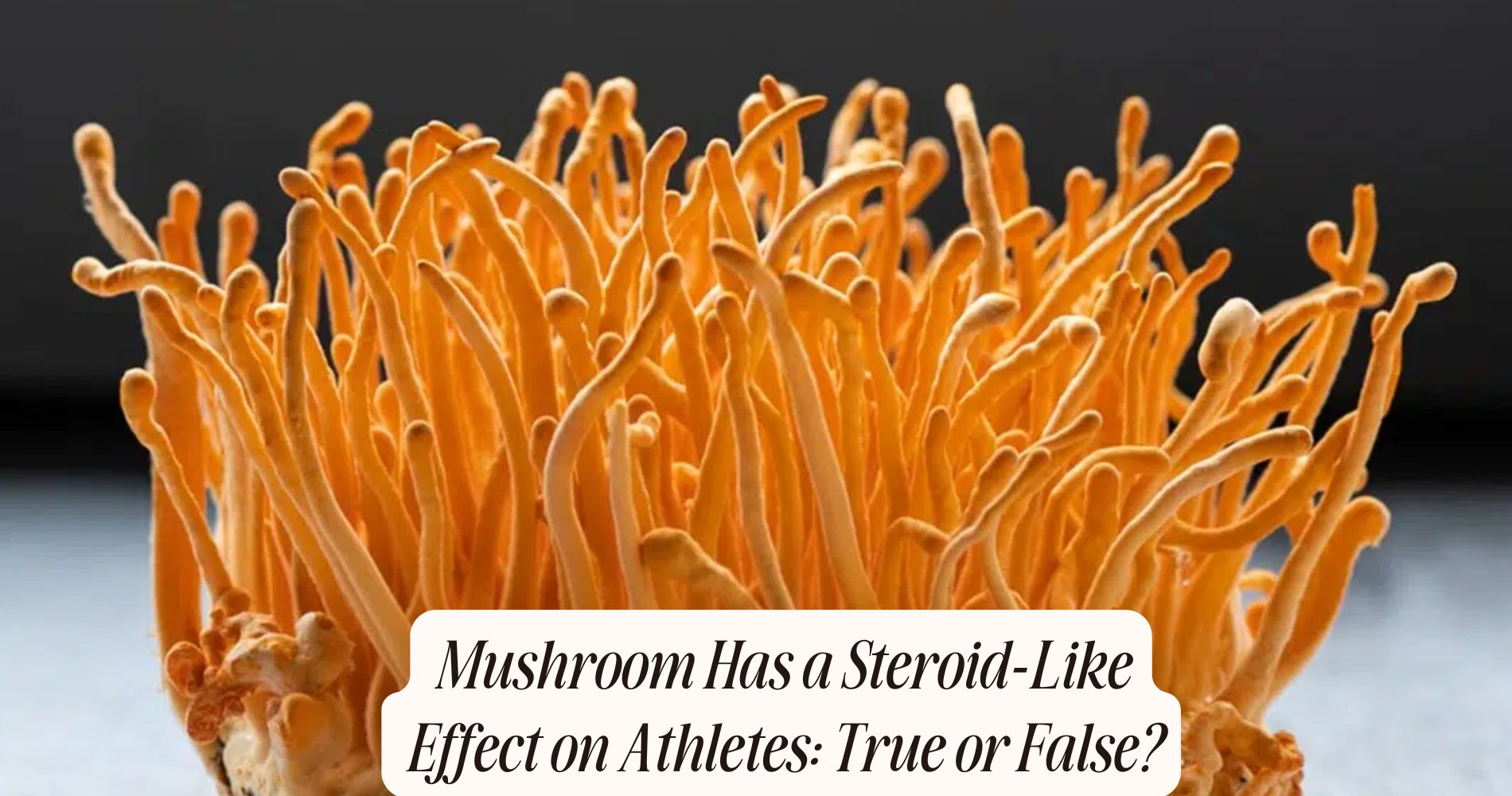
What is the Best Mushroom to Fight Prostate Cancer?
What is the best mushroom to fight prostate cancer? You should consider Reishi mushrooms among the best for fighting prostate cancer. They're rich in polysaccharides and triterpenoids that inhibit cancer cell proliferation and induce apoptosis. Reishi mushrooms also boost your immune system, enhancing natural killer cells and macrophages. Their strong anti-inflammatory properties can slow tumor progression linked to prostate cancer. Alongside clinical evidence-backed benefits, there are other mushrooms like Shiitake, Maitake, Turkey Tail, and Chaga that offer unique properties aiding prostate cancer treatment. By exploring these further, you'll discover how each one contributes to an integrated approach against prostate cancer.
Reishi Mushrooms
Reishi mushrooms, known for their bioactive compounds, have shown promise in scientific studies for their potential anti-cancer properties, particularly in relation to prostate cancer.
When you look at the reishi benefits, you'll find that they're rich in polysaccharides, triterpenoids, and peptidoglycans. These reishi compounds have been documented to exhibit anti-tumor, immunomodulatory, and anti-inflammatory effects, which are essential in combating cancer cells.
Research has indicated that triterpenoids in reishi mushrooms can inhibit the proliferation of prostate cancer cells. By triggering apoptosis, or programmed cell death, these compounds help reduce tumor size and hinder cancer cell growth.

Additionally, the polysaccharides in reishi mushrooms boost your immune system by enhancing the activity of natural killer cells and macrophages. This immune response is important for identifying and destroying malignant cells in the prostate.
Moreover, reishi's anti-inflammatory properties can also play a role in reducing the inflammation often associated with prostate cancer, potentially slowing tumor progression.
Shiitake Mushrooms
Shiitake mushrooms, rich in lentinan and eritadenine, have demonstrated notable potential in supporting prostate cancer treatment through their bioactive compounds.
Lentinan, a beta-glucan, is known to enhance the immune response, potentially inhibiting cancer cell growth and metastasis. Clinical studies have shown that lentinan can boost the activity of natural killer cells, which play an essential role in targeting and destroying cancer cells.
Additionally, eritadenine may help reduce serum cholesterol levels, contributing to overall health improvements that are beneficial during cancer treatment.
Incorporating shiitake mushrooms into your diet is straightforward and can be both delicious and therapeutic.

The shiitake benefits extend beyond their anti-cancer properties, offering antioxidants, vitamins, and minerals that support overall well-being.
You can add them to various shiitake recipes such as soups, stir-fries, and salads. For instance, a shiitake mushroom stir-fry with vegetables provides a nutritious, cancer-fighting dish that fits easily into a balanced diet.
Another option is shiitake mushroom soup, which isn't only comforting but also packed with beneficial nutrients.
Maitake Mushrooms
Have you considered the potent anti-cancer properties of maitake mushrooms in your prostate cancer treatment regimen? Maitake mushrooms, also known as Grifola frondosa, have garnered significant attention in scientific research for their potential health benefits, particularly in oncology.
Studies indicate that maitake mushrooms contain bioactive compounds such as beta-glucans, which enhance immune function. These compounds have demonstrated the ability to inhibit tumor growth and induce apoptosis in prostate cancer cells. The polysaccharides in maitake mushrooms can modulate the immune system, making it more effective in targeting cancerous cells.

In addition to their anti-cancer properties, maitake mushrooms offer a spectrum of other health benefits. They're rich in antioxidants, vitamins, and minerals, contributing to overall wellness. Regular consumption can support cardiovascular health, regulate blood sugar levels, and improve gut health.
From a culinary perspective, maitake mushrooms are highly versatile. Their rich, earthy flavor makes them a delightful addition to various dishes. You can incorporate them into soups, stir-fries, or even as a meat substitute in vegetarian recipes. Their unique texture and taste not only enhance your meals but also provide a nutritious boost, aligning well with a health-conscious lifestyle.
Turkey Tail Mushrooms
When considering the best mushrooms for prostate cancer, Turkey Tail mushrooms stand out due to their potent polysaccharides that can enhance immune function and inhibit cancer cell proliferation.
One of the key components in Turkey Tail mushrooms is polysaccharide-K (PSK), known for its strong immune support properties. Research indicates that PSK can stimulate immune cells, including T-cells and natural killer cells, which play vital roles in targeting and destroying cancer cells.

Clinical studies have shown that Turkey Tail mushrooms can improve survival rates in cancer patients by boosting the body's immune response. In addition to PSK, Turkey Tail mushrooms contain polysaccharide-peptide (PSP), another compound that supports immune function and exhibits anti-tumor activity. These compounds work synergistically to create an environment less favorable for cancer growth.
Furthermore, Turkey Tail mushrooms have been shown to reduce oxidative stress and inflammation, both of which are linked to cancer progression.
Chaga Mushrooms
Chaga mushrooms, renowned for their high antioxidant content, offer promising benefits in the fight against prostate cancer. These mushrooms contain bioactive compounds like polysaccharides, betulinic acid, and melanin, which exhibit anti-cancer properties. Research indicates that these compounds can inhibit cancer cell growth and induce apoptosis, or programmed cell death, in prostate cancer cells.
To harness the chaga benefits, scientists often employ chaga extraction methods to isolate these potent compounds. One common method is hot water extraction, which yields polysaccharides that have been shown to boost the immune system. Another method, alcohol extraction, isolates triterpenoids, known for their anti-inflammatory and anti-tumor activities.

Clinical studies suggest that chaga's high antioxidant levels help neutralize free radicals, reducing oxidative stress, a known factor in cancer progression. By limiting oxidative damage, chaga may slow the proliferation of prostate cancer cells. Additionally, chaga's anti-inflammatory properties may reduce inflammation within the prostate, which is often linked to cancer development.
Incorporating chaga mushrooms into your regimen, under medical supervision, could offer a complementary approach to traditional prostate cancer treatments. Always consult with your healthcare provider before starting any new supplement to verify it's appropriate for your specific condition.
Support Your Health with SUPER MUSHROOM GUMMIES
As you explore the best mushrooms to fight prostate cancer, consider incorporating Well Gummies' SUPER MUSHROOM GUMMIES into your daily routine. This convenient gum chew product is packed with 10 functional mushrooms, designed to naturally fuel your brain and energize your body. Our vegan gummies offer calmer energy, sharper focus, and immune support for a balanced body and clear mind.
Enjoy the delicious taste of fresh wild berries, just as delightful as your favorite candy, but without the jitters or crash. Shine all day with the natural benefits of SUPER MUSHROOM GUMMIES and support your overall health effortlessly.
Frequently Asked Questions
Can Mushrooms Be Eaten Raw to Fight Prostate Cancer?
You're wondering if eating raw mushrooms offers benefits against prostate cancer. Current prostate cancer research suggests that cooking mushrooms may enhance their beneficial compounds. Raw mushroom benefits are still under investigation, so consult your healthcare provider.
Are Mushroom Supplements as Effective as Whole Mushrooms?
You're wondering if mushroom supplements are as effective as whole mushrooms. Research suggests mushroom bioavailability varies, and supplement dosage might not match the nutrients in whole mushrooms, potentially affecting their efficacy in prostate cancer prevention.
How Should Mushrooms Be Prepared for Maximum Health Benefits?
To maximize mushrooms' nutritional value, you should use cooking methods like steaming or grilling. These methods preserve essential nutrients and bioactive compounds. Avoid frying, as it reduces the health benefits by adding unhealthy fats.
Can Mushroom Consumption Interact With Prostate Cancer Medications?
You should consult your physician about potential mushroom interactions with your prostate cancer medications. Some mushrooms might affect medication efficacy, altering how drugs are metabolized and potentially diminishing their effectiveness or causing adverse effects.
Are There Any Side Effects of Consuming Medicinal Mushrooms?
Yes, medicinal mushrooms can have side effects. You might experience mushroom toxicity or allergic reactions. It's essential to consult a healthcare provider before starting any new supplement to guarantee safety and efficacy.
Conclusion
To summarize, incorporating mushrooms such as Reishi, Shiitake, Maitake, Turkey Tail, and Chaga into your diet may provide supportive benefits in fighting prostate cancer.
These mushrooms contain bioactive compounds that have shown promising anti-cancer properties in clinical studies.
While they're not a substitute for conventional treatments, adding them to your regimen could enhance your overall health and potentially improve treatment outcomes.
Always consult your healthcare provider before making any significant dietary changes.




